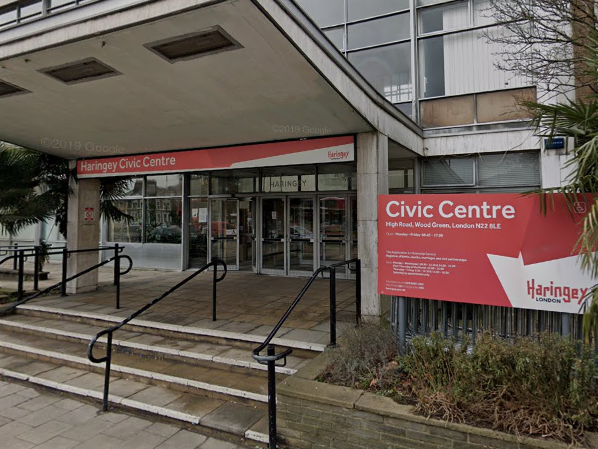
Two journalists have won a challenge in the High Court to name a London council that a judge ruled had “disregarded fundamental principles of safeguarding and child protection”.
Mr Justice Hayden had been asked to make decisions relating to the care of a disabled boy and a second child whose parents were separated.
In doing so he made “trenchant criticisms” of the council’s conduct of the case. He said: “I do not think that I have ever had to criticise a local authority to the extent that I have found it necessary to do in this case.”
Mr Justice Hayden last week banned the naming of Haringey Council following an application from the authority, heard remotely, of which the press had not been informed in advance.
At that time, the judge decided the vulnerability of one of the children involved in the case “tipped the balance in favour of prioritising the children’s family life and emotional well-being over the legitimate public interest in identifying the local authority and the relevant professionals”.
The judge continued with the hearing, despite knowing press were not present to challenge the decision, as he was “extremely conscious” of the stress the family was under, but said he gave weight to freedom of expression rights and ensured the judgment was sent immediately to the press so they could contest it if they wished.
PA journalist Brian Farmer and freelance journalist Louise Tickle quickly teamed up and told the judge they wanted to make an application to be able to name the council.
Tickle told Press Gazette: “The outcome was awful for this family and I thought about all the other families of children in this local authority and I just thought the public interest was so strong in them knowing what had happened.
“What was really nice was to work with another journalist and pool our experience and our thinking about how to go ahead.”
The father, who the judge decided will care for one child with the disabled boy going into care, was in support of the council being named.
The journalists put together a picture of the case to give the judge information he had not already heard – including an Ofsted report showing how issues with the disabled children’s team at Haringey were ongoing.
This was despite a barrister for the council telling the judge it was an “isolated example of bad practice”.
Tickle said: “That’s why the media has to be put on notice, which it should have been, and the judge recognised it should have been, when that application was made by the local authority to redact its name from the judgments – because we bring a different set of skills, we bring a different perspective, a totally different approach and different priorities.
“My wider priority is the public interest. That’s who I write for and I will go and make my case on that basis, whereas the local authority and guardian will make their case on a different basis, so the media has to be there at the beginning and it was wrong that we weren’t.”
The local authority, the mother and the children’s guardian argued they would be easily identified by jigsaw identification because of the history of the case, but Farmer argued: “I don’t think the concerns are enough to justify the council’s anonymisation.
“I think, in the real world, the chances of people putting together an identity jigsaw are small and the chances of someone putting together that jigsaw and causing harm, smaller still.”
In his submissions to the court, Farmer said: “The media has an Article 10 right to impart information. The public has an Article 10 right to receive information.
“If that right to free speech does not allow the media to tell the public that this council, a public authority, twice subjected to very high levels of criticism over its handling of the welfare of children, has again been criticised and… in trenchant terms by a judge based in the Family Division of the High Court, then what is that right to free speech for?”
The judge praised this as a “powerful assertion of the importance of freedom of speech and the responsibility of the press to hold public bodies to account”.
He concluded that the public interest in naming the local authority “must prevail against the potential, but not inevitable, identification of the children and the potential, but not inevitable, emotional distress” of one of the children in particular.
The judge added that the case was a “timely reminder to the profession” of the need to ensure the press are appropriately notified of remote hearings.
Picture: Google Maps
Email pged@pressgazette.co.uk to point out mistakes, provide story tips or send in a letter for publication on our "Letters Page" blog
